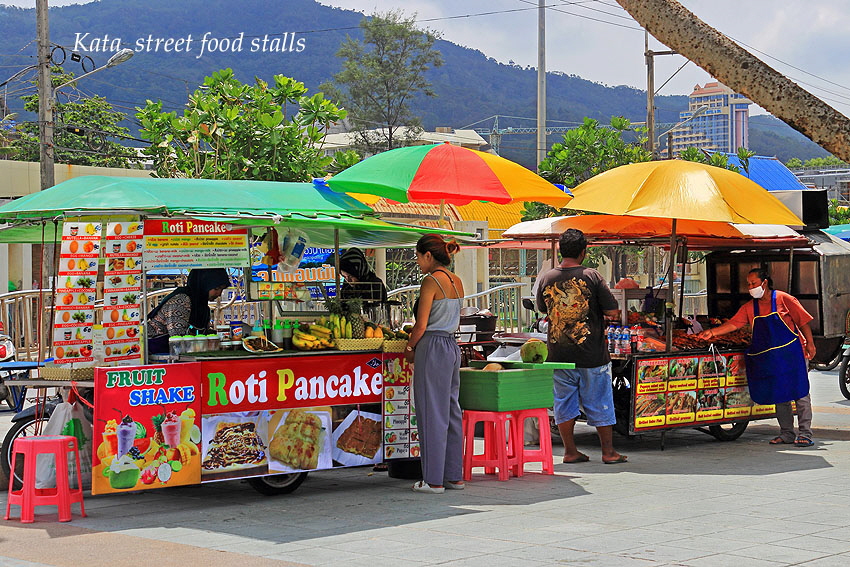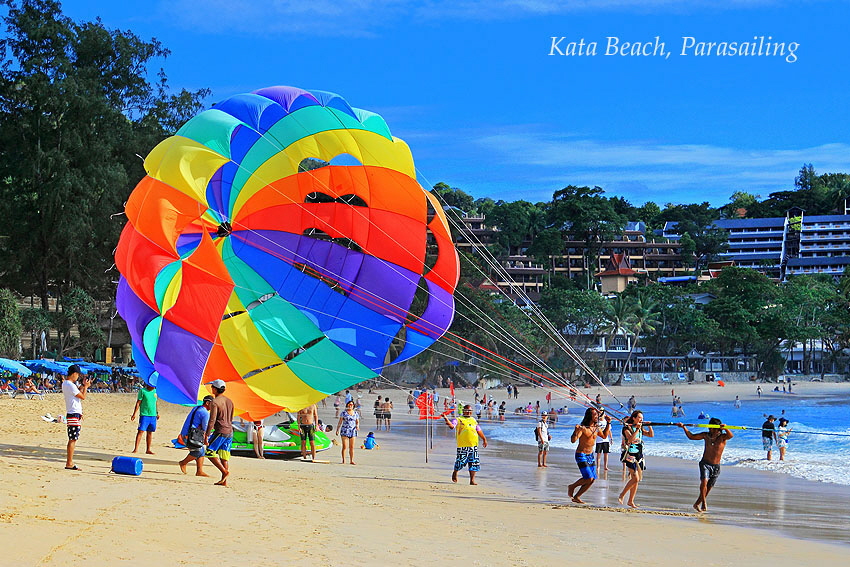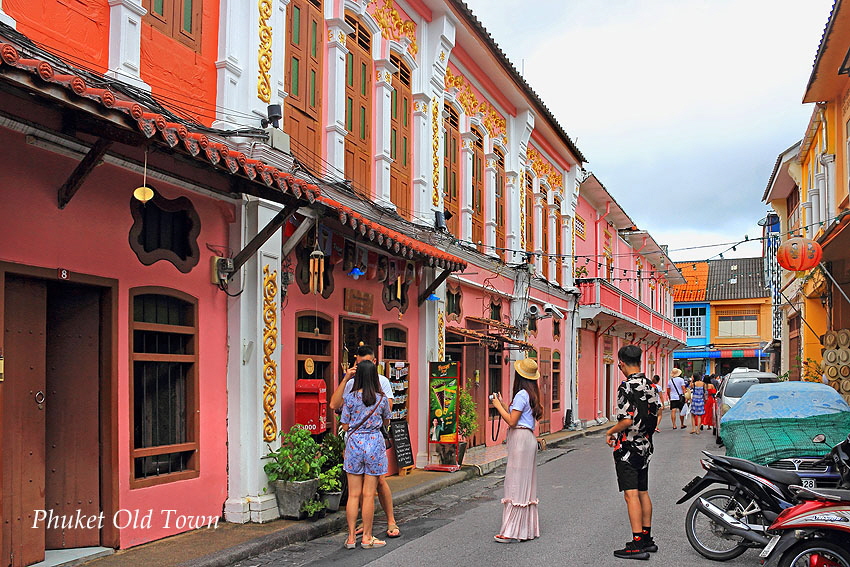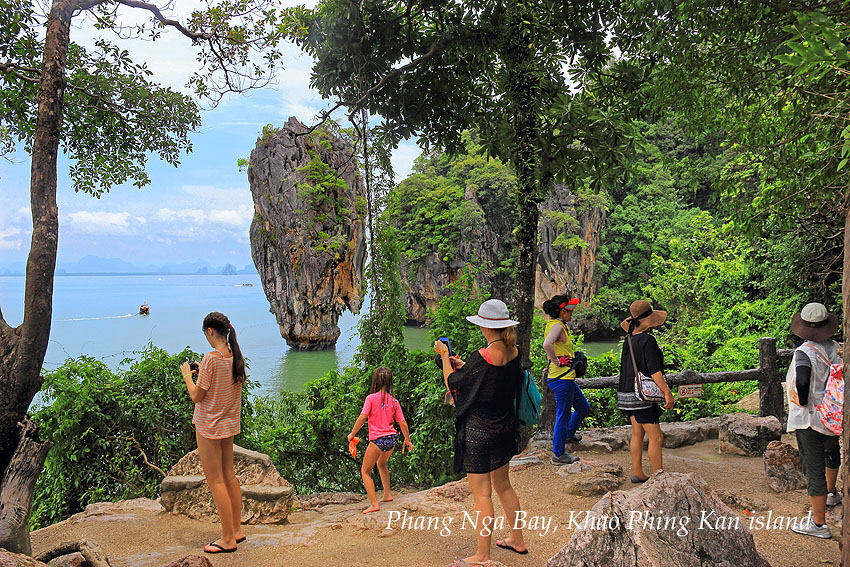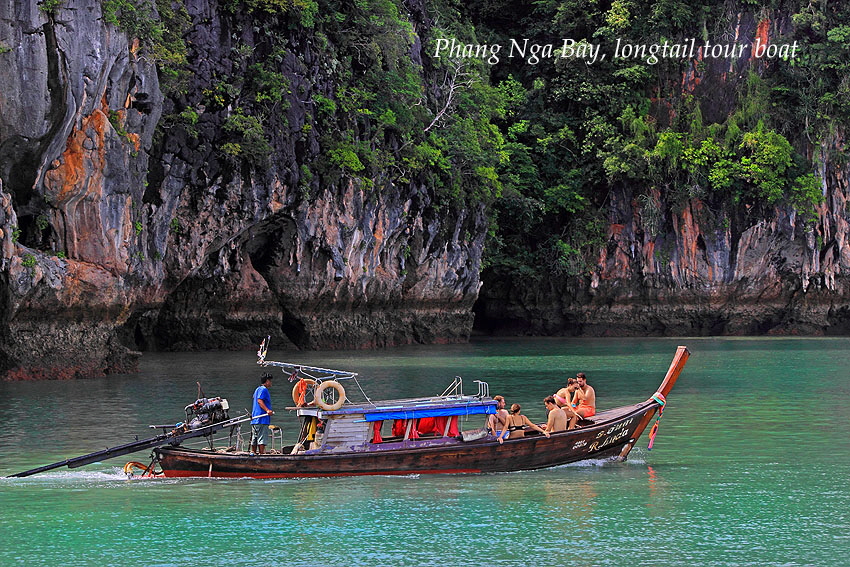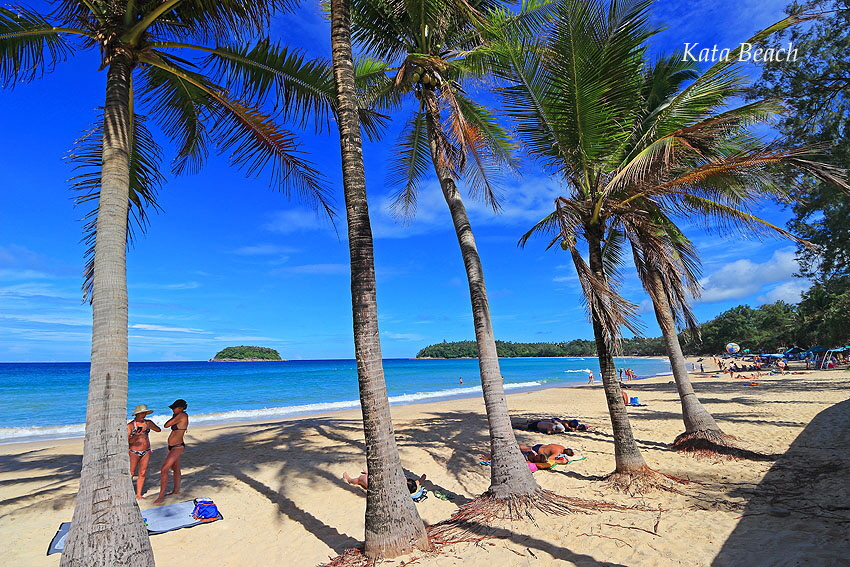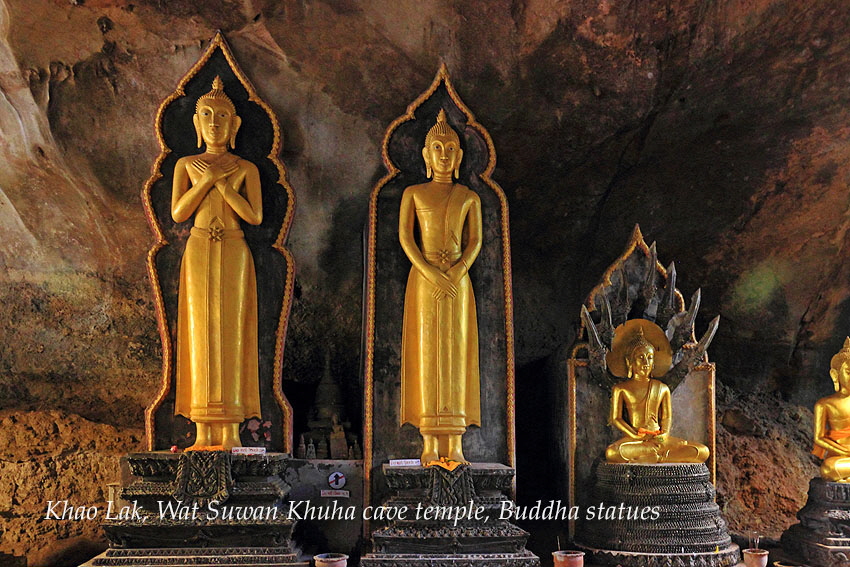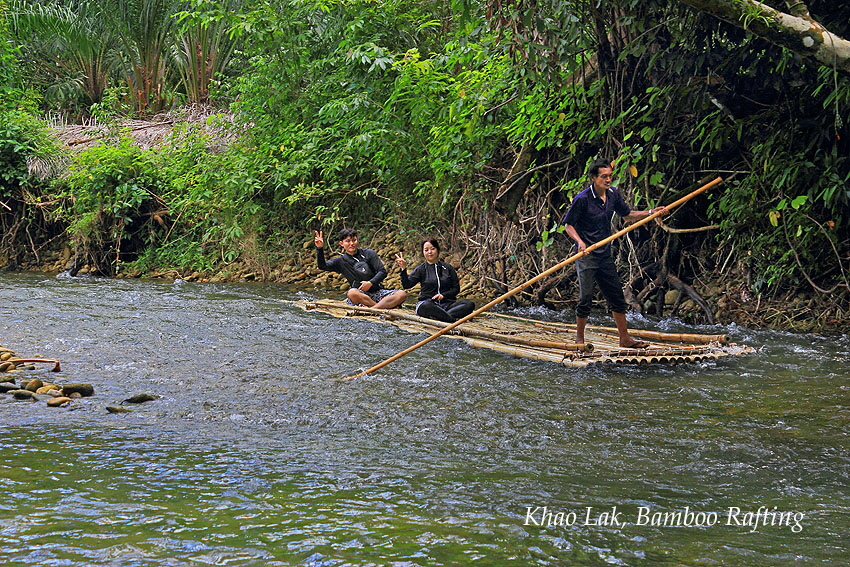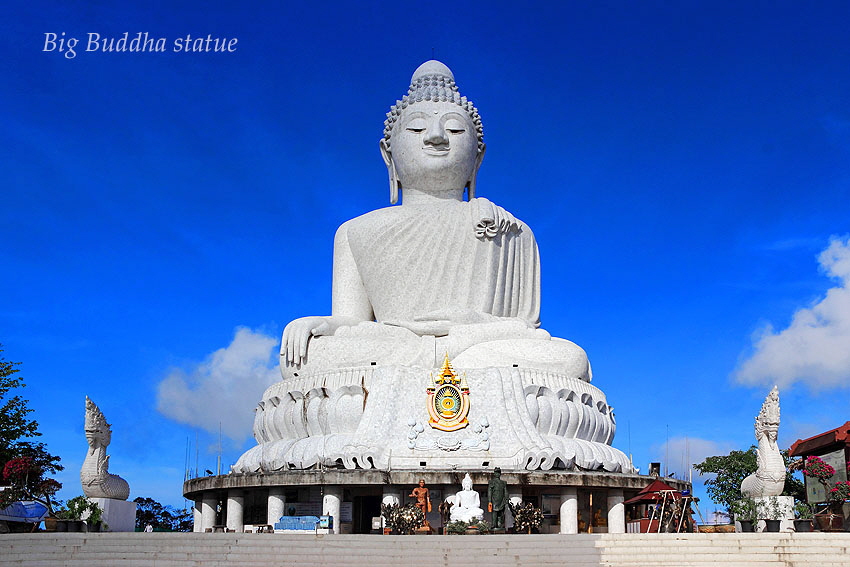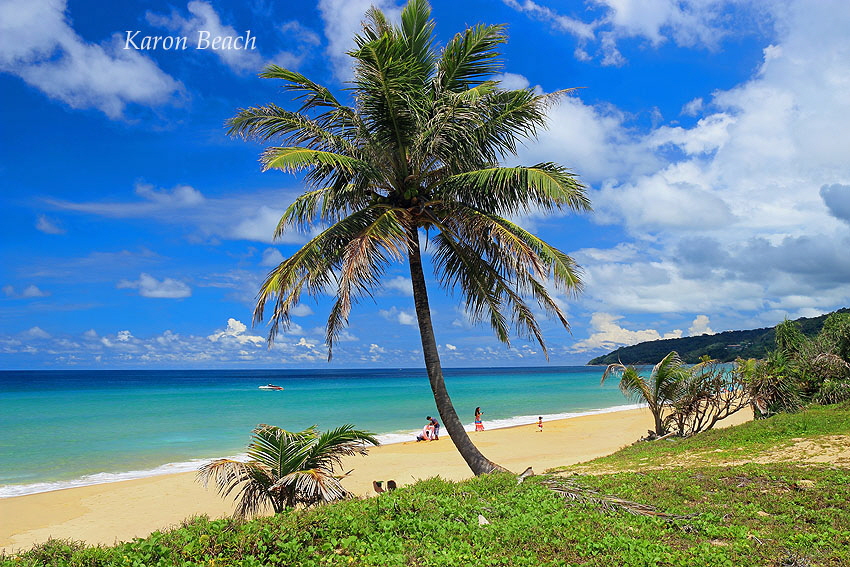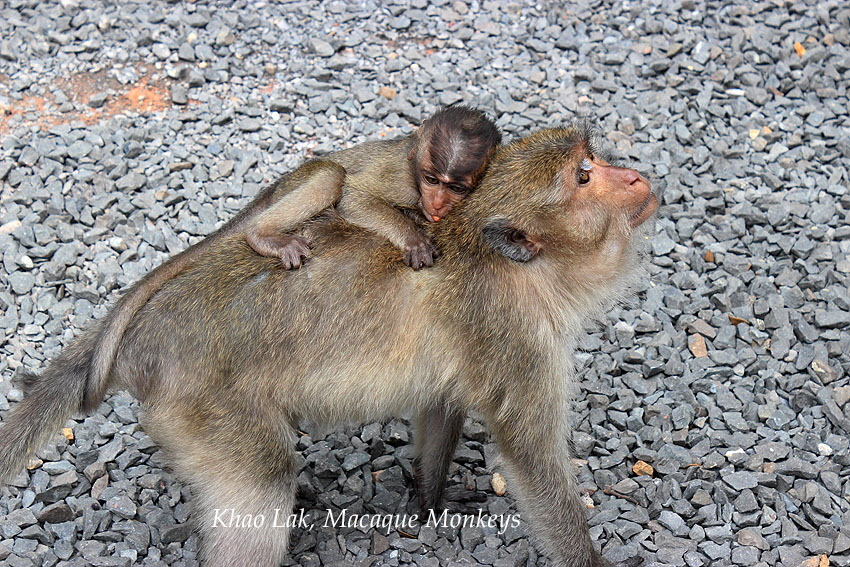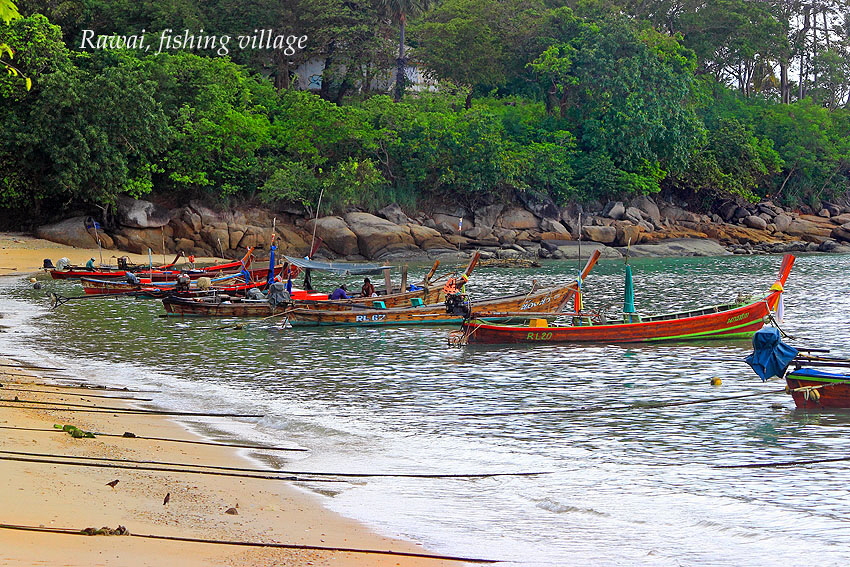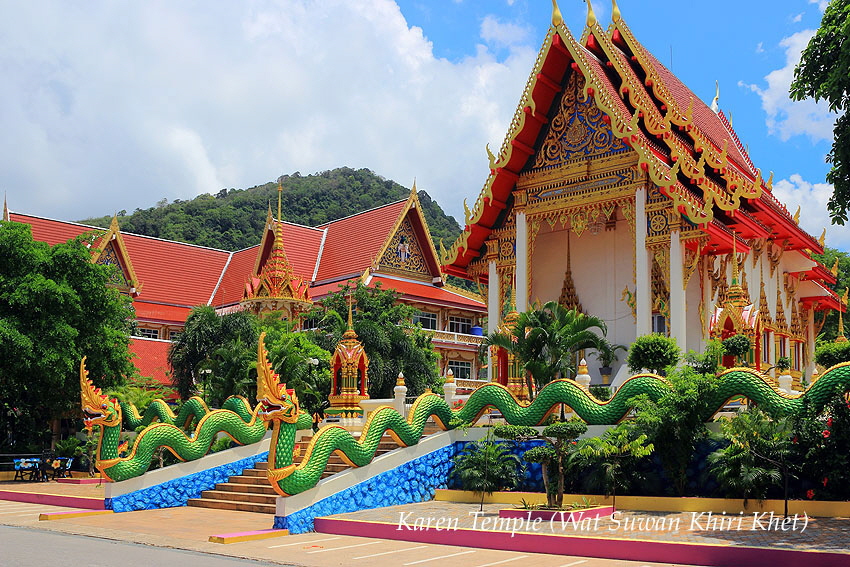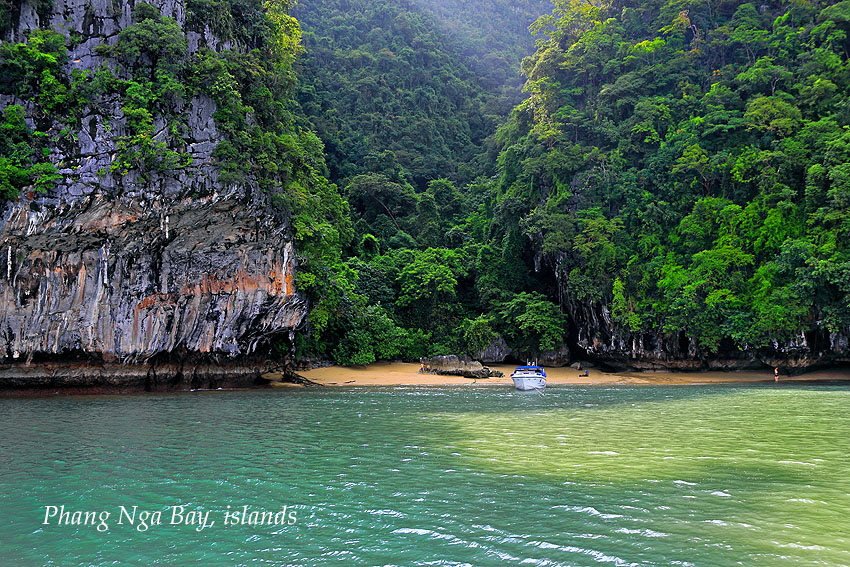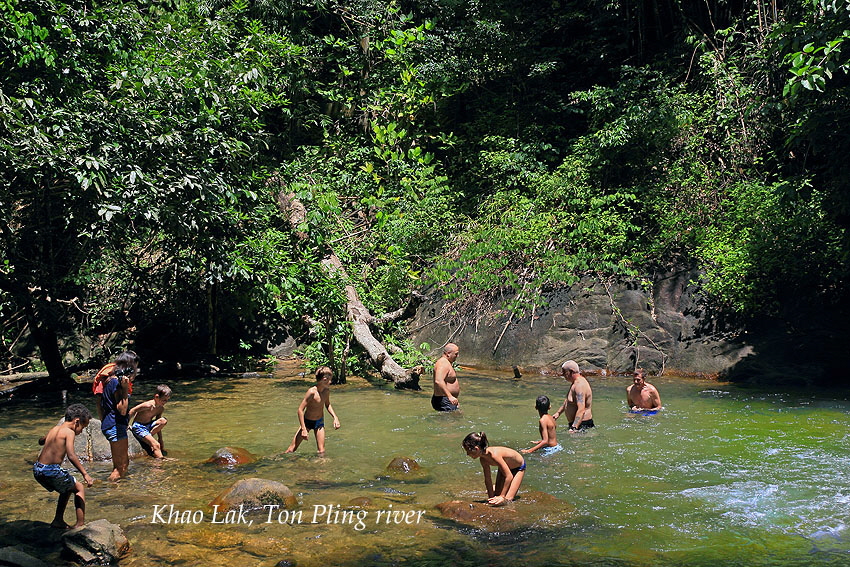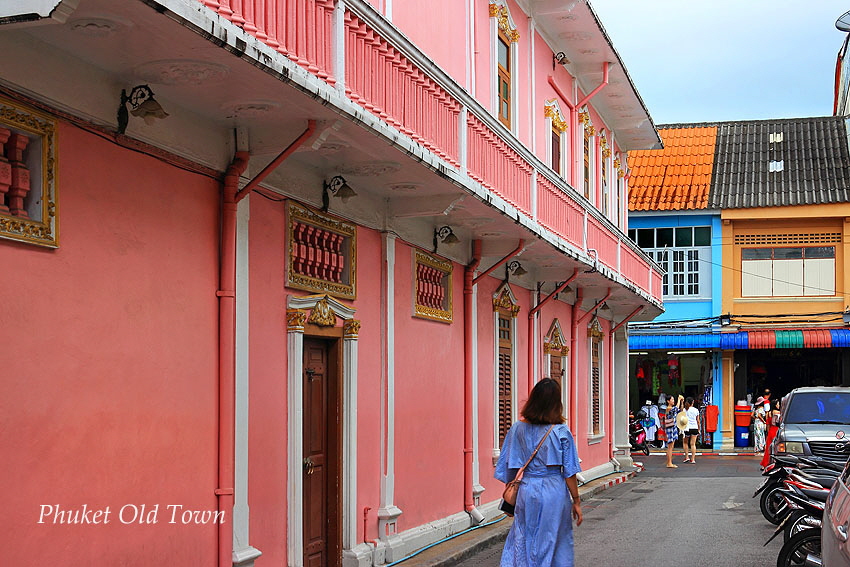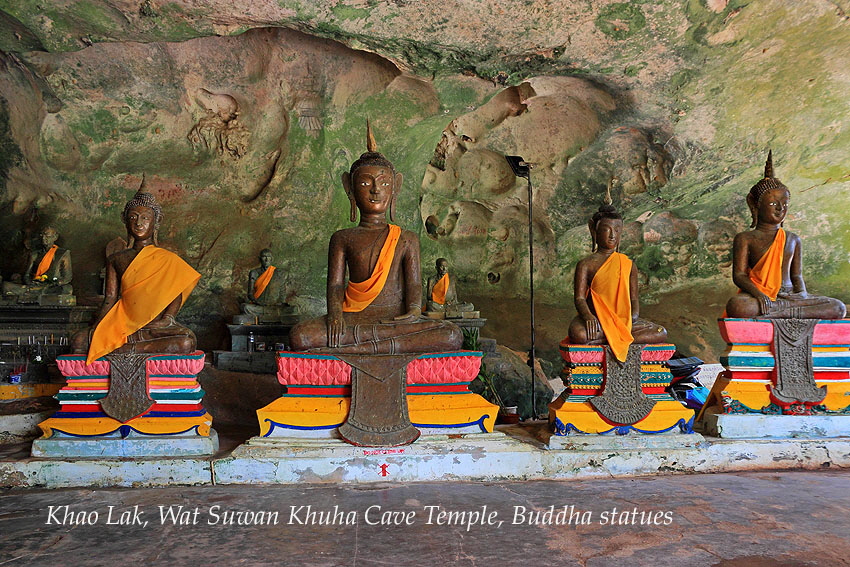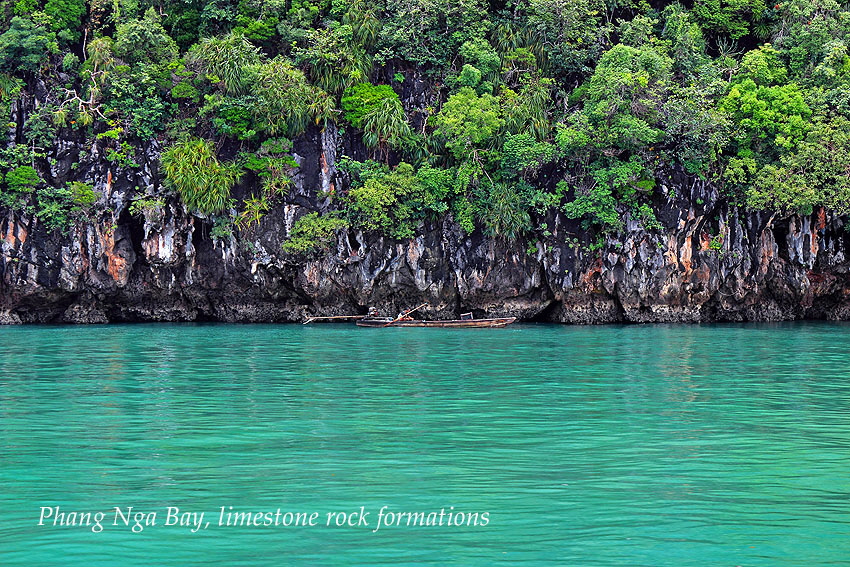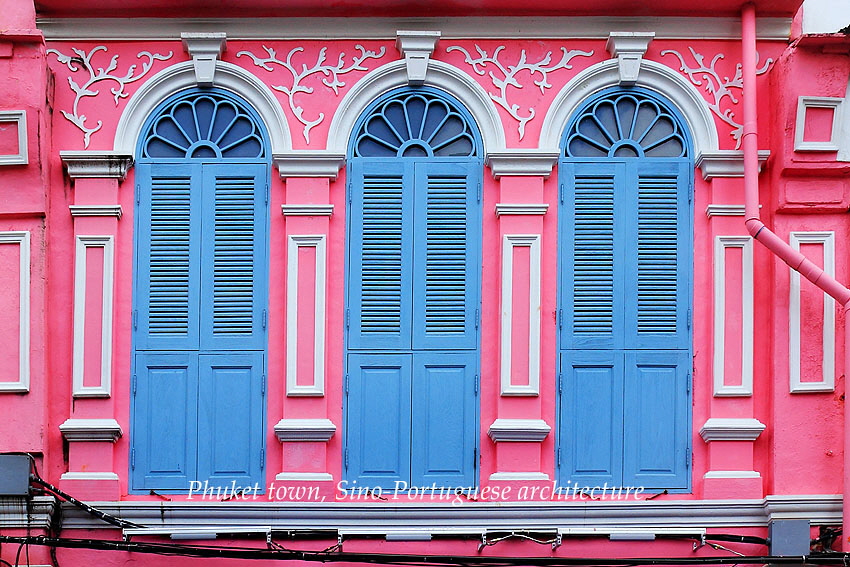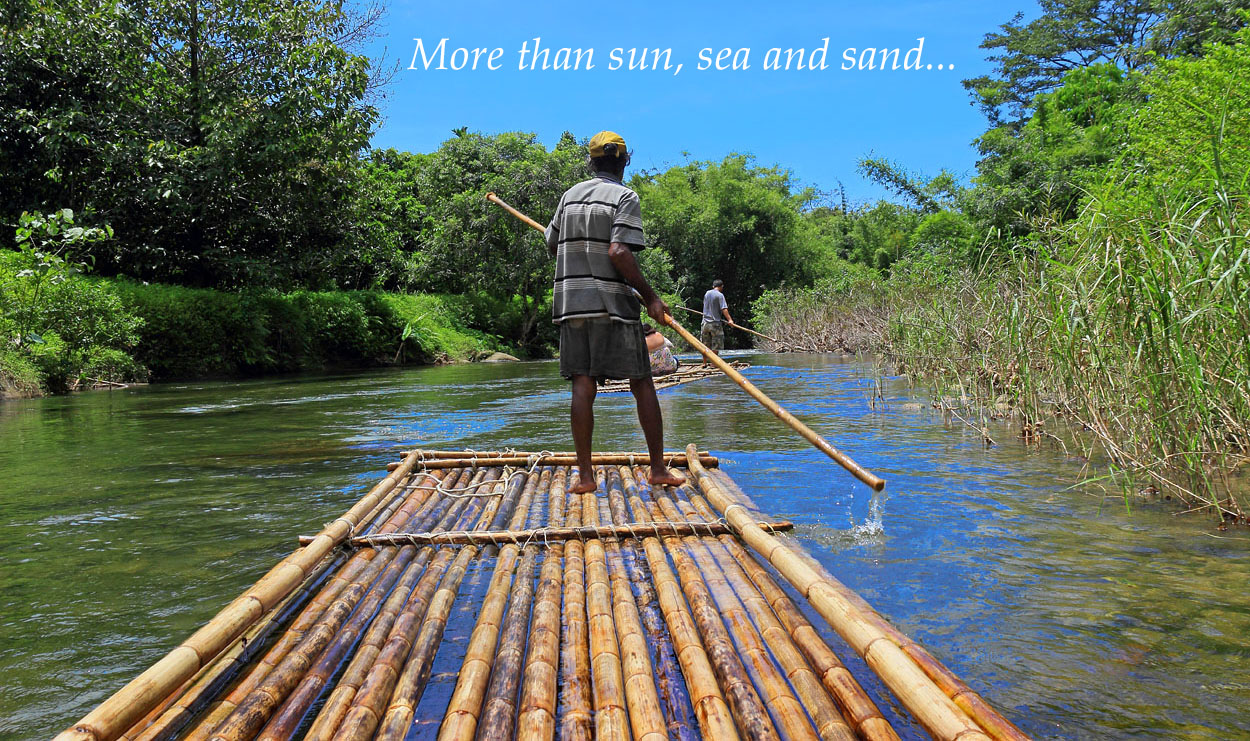
What else to expect in Phuket
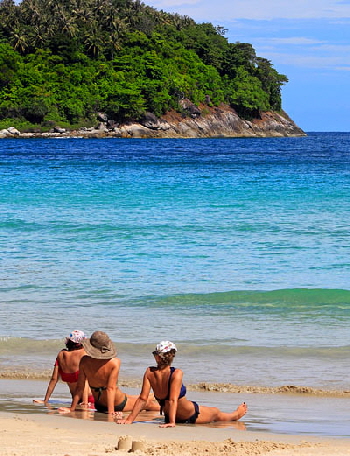
|
Phuket is overtourism, and unashamedly so. After all, it is its lifeblood. It began in the early 70’s when it was mainly a backpackers haven. But with the building of an international airport, it drew visitors from around the world, and today it caters right up to the 5 star luxury traveller providing all the comforts you could possibly desire. |
||
|
|
||
Big Buddha temple site

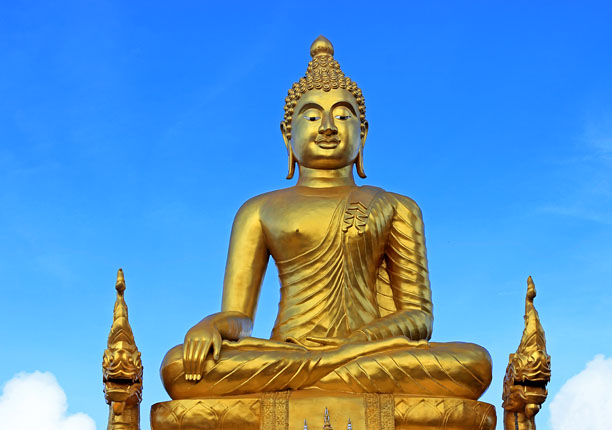
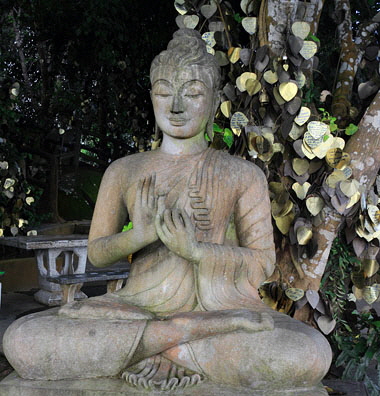
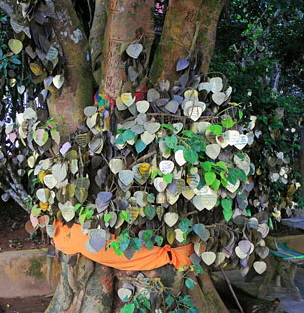
Bo tree, with well wishes
My first early morning drive took me up Nakkerd Hill to the site of the 45 metre tall Big Buddha. Built on the highest point of the hill, the statue is one of the most important landmarks in Phuket. It is also the third tallest Buddha figure in Thailand. The concrete statue layered with milky white jade marble looked stunning with the morning sun glistening on it. With dazzling 360 degree views across the countryside and small walking paths,
I was not ready to hop back into the car and be driven away in a hurry.
Around the temple grounds and interior are several other Buddha statues, both large and small. There is no entrance fee, but an interesting donation is to purchase a small ‘gold’ heart leaf, write your wish and add to one of the Bo trees around the temple grounds.
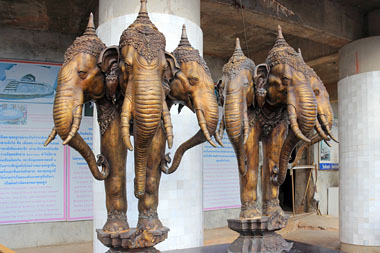
Chalong Temple
Chalong Temple, chedi
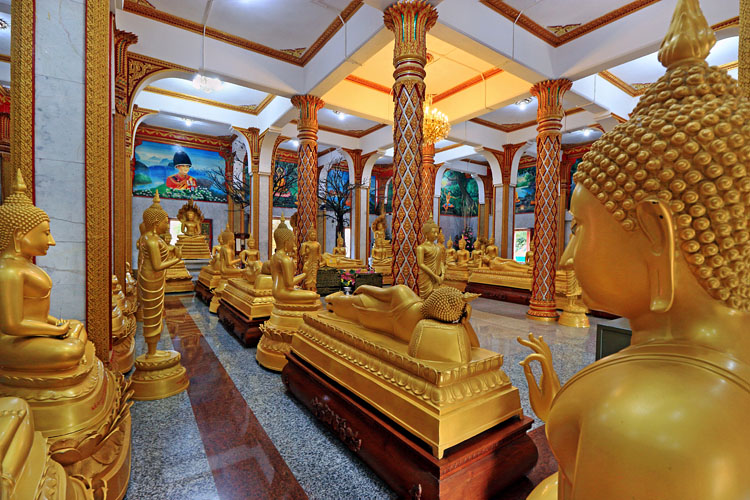
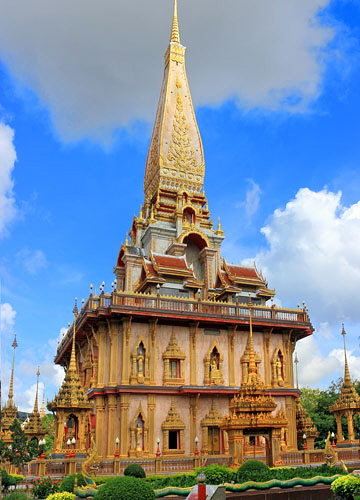
Back at ground level, we headed for Phuket’s largest temple site - Wat Chalong (aka Wat Chaitararam), built in the early 19th century. Lee, my driver said “take your time, there’s a lot to see here”. He was right. The complex contains several buildings, landscaped gardens with fountain, shrines,
statues and bell tower.
Dominating the site is the three floored 60 metre tall Phra Mahathat Chedi. It was built to store sacred Buddhist relics (not visible to visitors), including a part of the shoulder bone of the Buddha.
Stepping inside, I was overwhelmed by the elaborate walls and ceilings covered with paintings and murals depicting the life of the Buddha and his teaching, and numerous golden Buddha statues in different postures. Climbing up to the top floor and a walk around the balcony offered a wide view of the temple site and gardens below. A quiet and peaceful stroll around the gardens was broken by the arrival of the first coach full of tourists.
Back to the car, Lee took me to a nearby stall for a coconut water drink (chilled fresh coconut, with the top cut off). It was so refreshing, as the sun was high up and getting warmer.
Chalong Temple complex
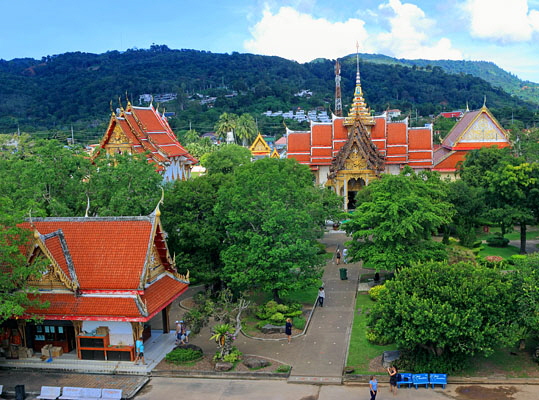
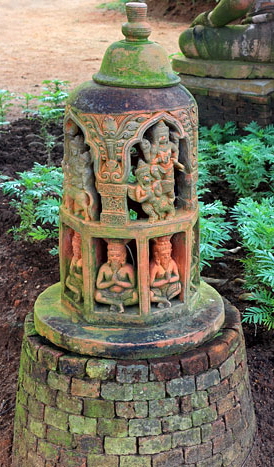
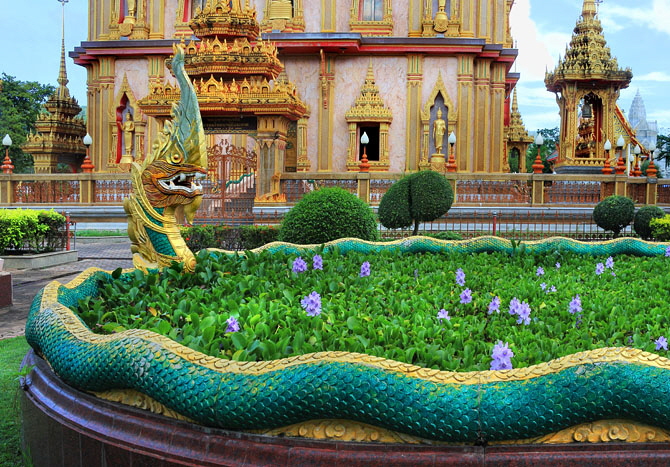
Chalong Temple complex
Next we headed towards Phuket Town. The first thing you notice about this small ‘city’ is, that it just does not look like any other Thai town. The most obvious is the architecture. A mixture of Malay, Chinese and especially Portuguese have left their mark on the buildings and houses.
One of the most photographed streets is Thalang Road with its shop houses characterised by vividly-coloured facades, tilework, intricately carved wooden doors and elegant arched windows.
Even if you’re not interested in history, just meandering in the town and taking in the unique atmosphere is in sharp contrast to the beach resort from where I left in the morning.
Phuket Town, old town
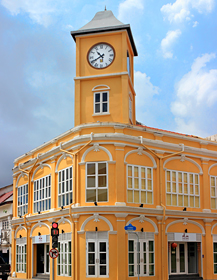
Phuket, old town architecture
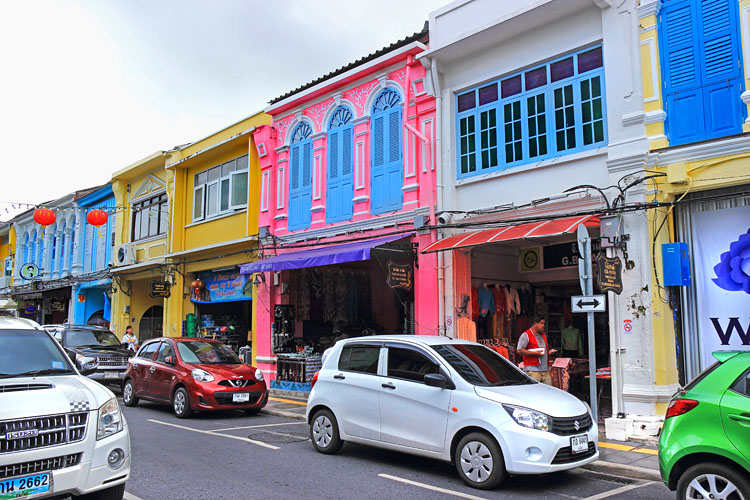
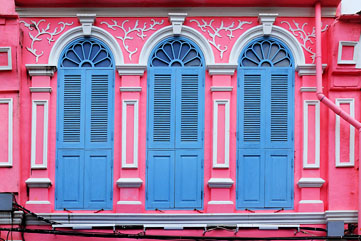
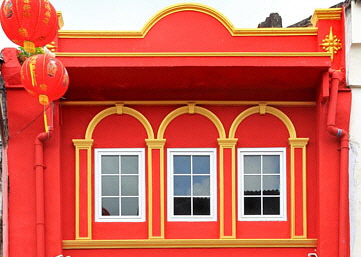
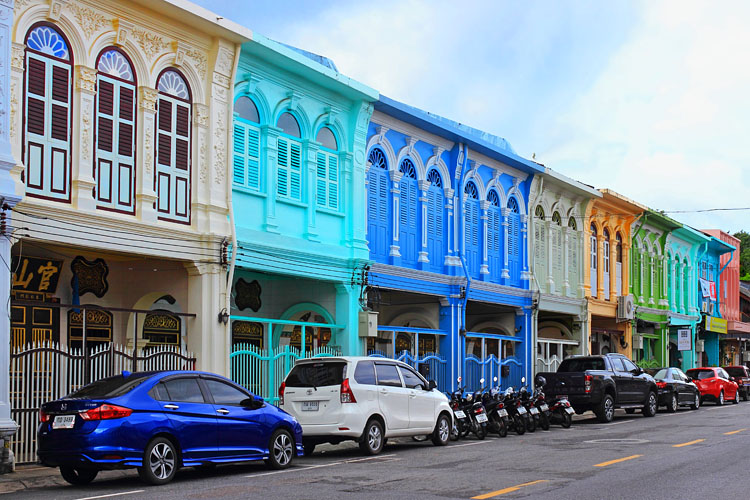
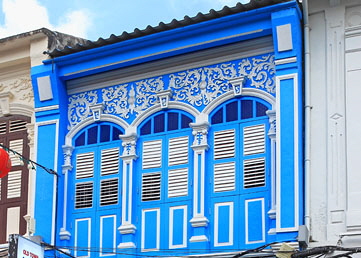
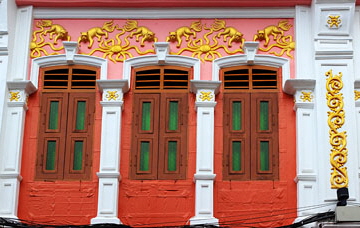
After stopping for a late lunch at a small restaurant, serving Thai Fish Curry, spicy rice wrapped in banana leaf and downed with a Singha beer, I was back in Kata Beach to watch a picturesque sunset.
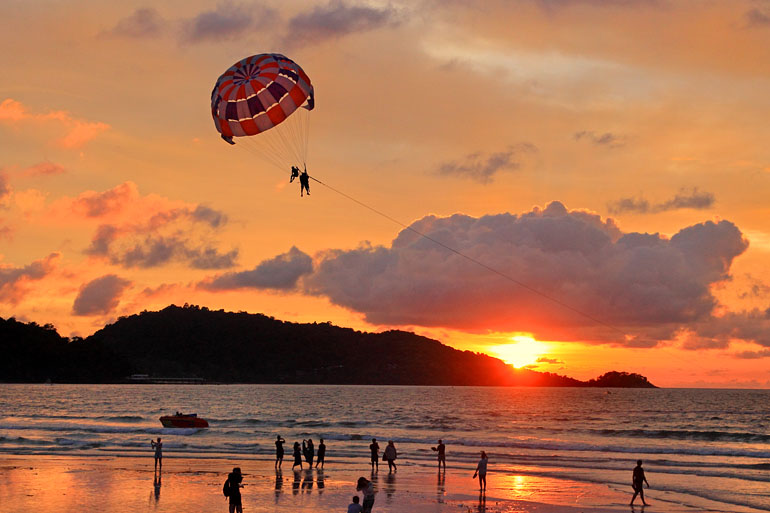
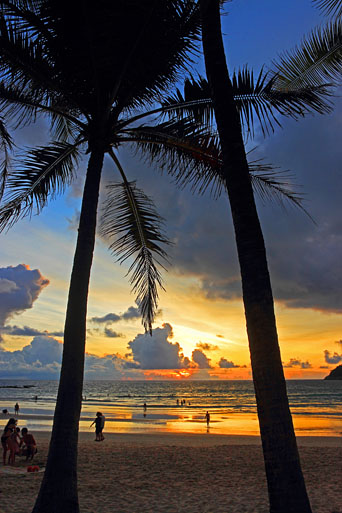
Thirty minutes drive through dense traffic towards the southern tip of Phuket, is the village of Rawai. It’s the home to people known as Sea Gypsies, who eke out a living mainly by fishing. Arriving there by mid morning, I walked to the end of the jetty to enjoy the views, and watch the boats arrive from a night out at sea, and hauling their catch onto the shore.
Hardly anything has changed in their traditional lifestyle, although tourism has slowly but surely crept in, with souvenir stalls, shops, and small overpriced restaurants, interspersed with the local fish markets. The one long road along the coast is the best way to observe their daily activity, mending nests, boat repair, and distributing their catch to various market stalls. Stepping out onto the beach where a row of colourful fishing boats were lined up, I was thankful not to see any jet skis or parasails. However, with the growing influx of tourists, how long Rawai can sustain its village life and culture remains to be seen.
Rawai market, Parrot fish
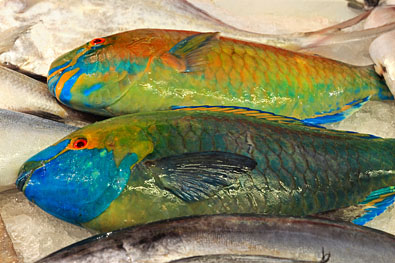
Rawai fishing village
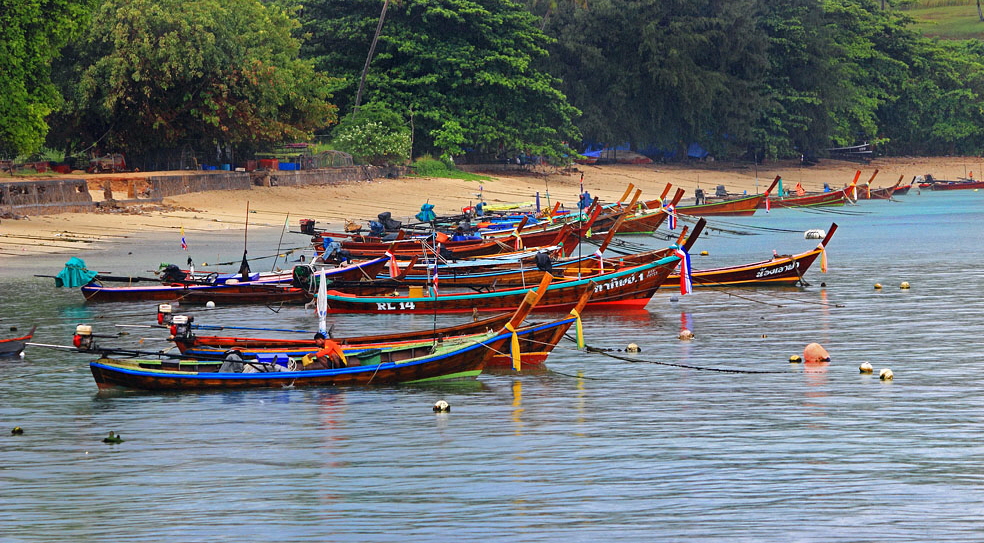

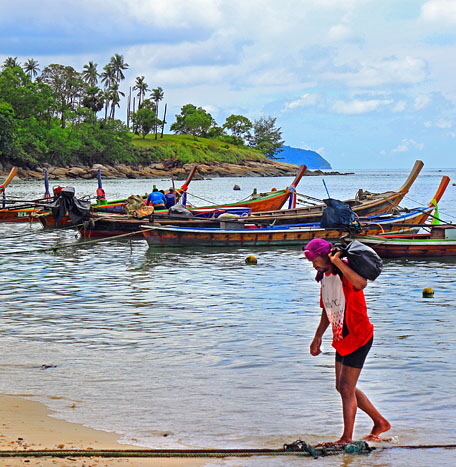
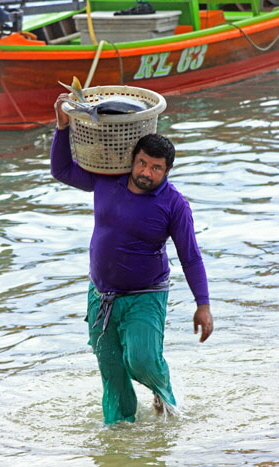
Rawai fishing village
North of Phuket island is Sarasin Bridge, which connects to mainland Thailand’s Phang Nga Province. And around 60 km drive further up is Khao Lak, an area of national parks, hills, rain forests and waterfalls.
Although there are many coach tours from Phuket, which include bamboo rafting and temple visits, I preferred to follow a similar itinerary by car with my driver. Passing by mile after mile of rubber plantations, we came to Khao Sok river, in a cool jungle setting. Here we waited for while until our guides unloaded their rickety looking bamboo rafts into the river. Maximum of two persons per raft, I was helped onto one of them, as we gently glided downstream, surrounded by pure tropical forest scenery. Although the boatman expertly steered the raft with a long bamboo pole (similar to punting) through the shallow river, there was no way of avoiding your bottom getting drenched. The hour long ride was a thoroughly enjoyable experience.
My next stop was at the Ton Pling Waterfall. Nothing extraordinary about the falls itself, except for the beautiful scenic background. A coach full of tourists were already there, in for a swim. As I had brought a picnic lunch with me, I decided to share it with Lee, and shaded under a tree, we watched the bathers relishing their time in the cool flowing water.
Rubber plantation
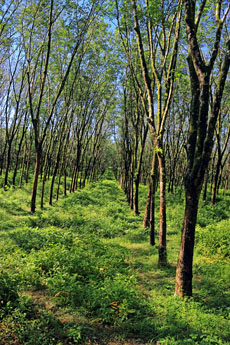
Khao Lak, Bamboo Rafting

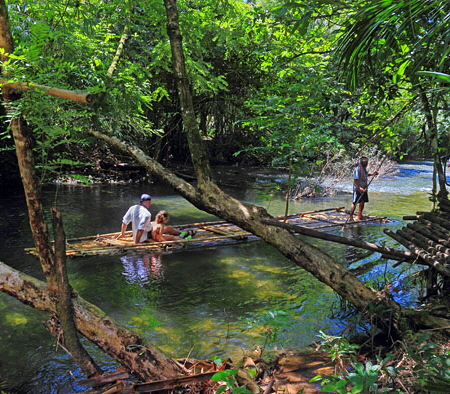
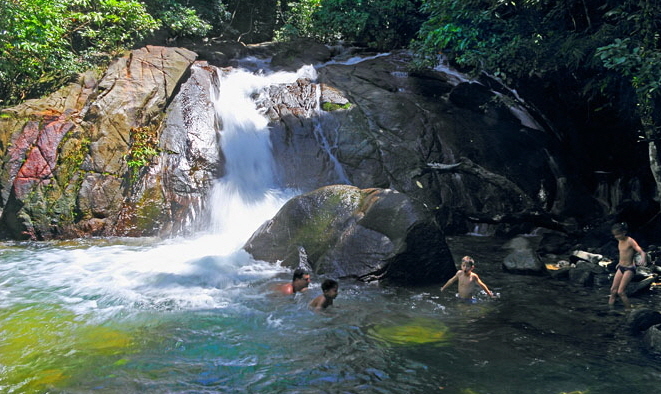
Khao Lak, Bamboo Rafting
Ton Pling waterfall
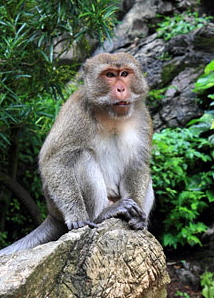
Macaque
In the tropical forests near the town of Phang Nga, and inside a huge limestone hill, is the Suwan Khuha cave temple, also called the ‘Wat Tam’ or ‘Temple Cave’ and is an essential visit. It is one of southern Thailand most important temples and a Buddhist spiritual landmark. Entering the largest of the four caves named Thai Yai, the subdued lighting combined with the limited natural light created a mystical atmosphere.
The dominant figure inside is the 50 foot (15 metre) magnificent golden reclining Buddha. There are a number of other Buddha statues too and a chedi. Spread around the site are some shrines where you can light incense and say a prayer. Most worshippers however preferred to make flower offerings in front of the reclining Buddha.
Some stalactites and stalagmites decorate the caves, and a colony of bats reside within, although I didn’t see any. You can climb further inside and upward onto an open area which leads into the forest. Back outside the temple grounds the macaque monkeys are waiting. And people too, waiting to sell you food to feed them.
Suwan Khuha Cave Temple
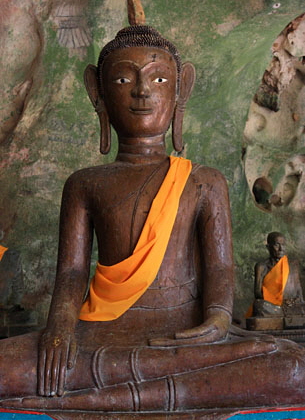
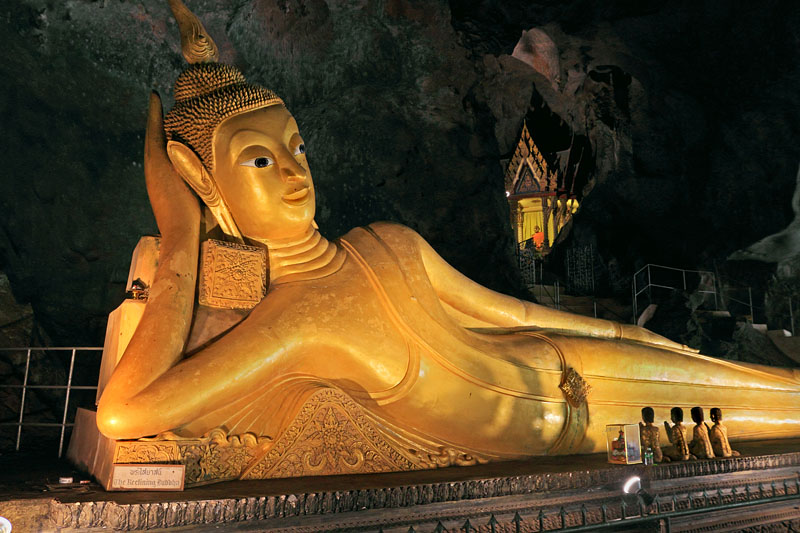
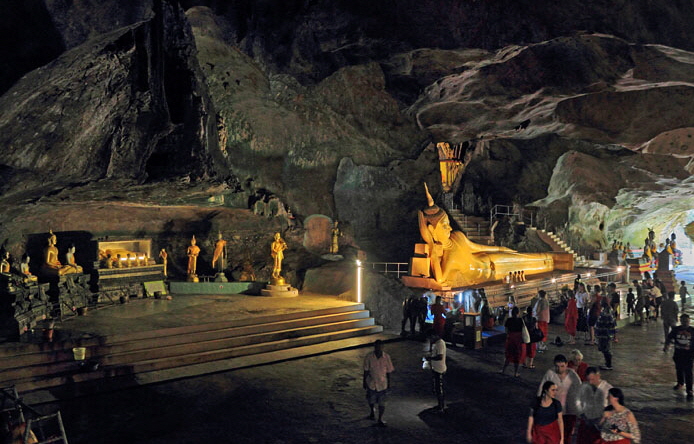
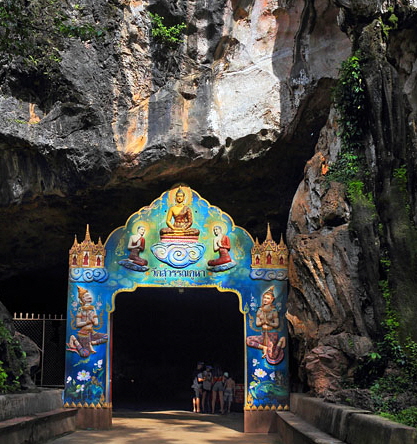
Suwan Khuha Cave Temple, reclining Buddha
Entrance to the cave temple
It was another glorious sunset when I got back to Kata. The following morning, I took a 45 minute leisurely walk along the beach and then inland to Karon Temple (Wat Suwan Khiri Khet). It’s a small complex, with the entrance featuring two imposing guardian Nagas (serpants) at the elaborate Thai style Ordination Hall. The Naga sculptures also encircle the main temple building. The grounds contained shrine rooms and a three tier pagoda. It was a quiet and peaceful place to be, away from the traffic noise nearby.
Karon Temple site
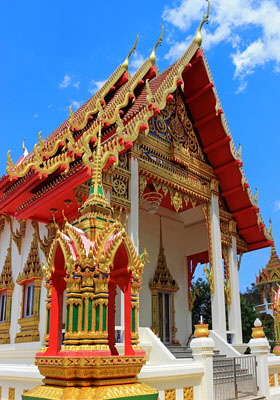
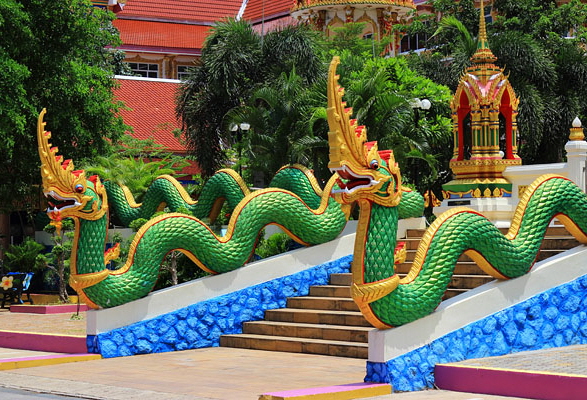
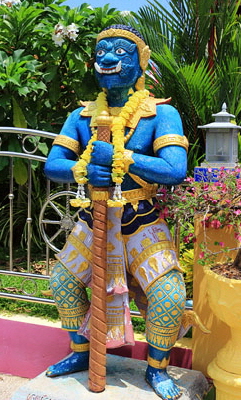
I could not go back home without succumbing to at least one escorted excursion, and what better than to the ‘James Bond Island’ (Khao Ping Kan) at Phang Nga Bay. Since the 1974 movie ‘Man with the Golden Gun’ was filmed there, it hasn’t ceased to draw sightseers to this iconic island. The cruise to the island itself past some other islands with beautiful limestone outcrops and cliffs is breathtaking.
It was a pleasant surprise not to find boatloads arriving all at the same time. Once landed, you were given a couple of hours to wander about the island at your own pace. There is no doubt, the location and scenery of this island and it famous little outcrop Ko Ta Po is inimitable. Photo opportunities abound with just about every visitor having to have their photo taken to say ‘I’ve been there’.
I did spend another week, idling around Kata beach area, and yes, despite the crowds, I could still find a quiet spot of the beach all to myself.
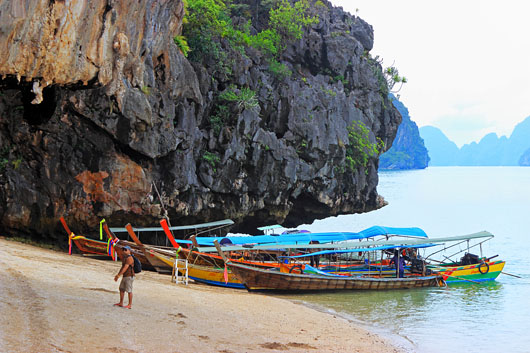
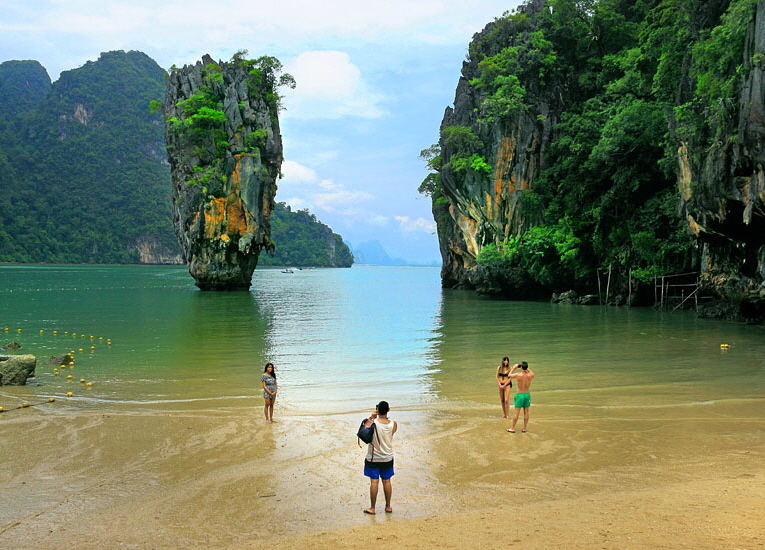

Phang Nga Bay, ‘James Bond’ island
Fact file:
There are numerous package tours to Phuket, and several airlines that fly there. I flew with Asiana (via Seoul), and stayed at the Channalai Flora Hotel, which is just 5 minutes walk from Kata Beach
Car Hire: I hired my car with driver from Getyourguide. There are several other companies online that you can book through.
What you can cover in a day: leaving at 8am, and returning around 5pm
I visited the Big Buddha, Wat Chalong and Phuket Town, all without any rush and with plenty of time to explore and see the places. A trip to Khao Lak is a full day, also because of travel time.
20 images here ©JAYTRAVELPHOTOS
© COPYRIGHT notice. The images on this site are for viewing only.
To purchase any, for personal or commercial use, please contact us at jaytravelphotos@aol.com
